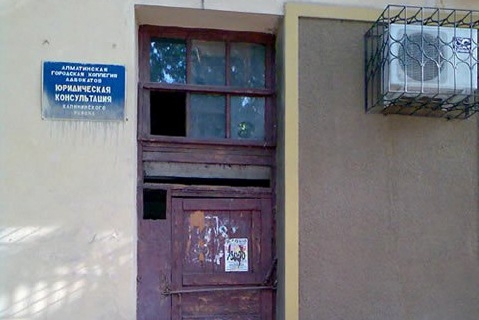Freedom from Torture
Civil Society Coalition against Torture and impunity in Tajikistan

Many lawyers in Central Asia face serious obstacles in carrying out their functions, including harassment, intimidation and physical attacks and are in need of much greater protection for their work and independence, an ICJ new report says.
Published today, The Independence of the Legal Profession in Central Asia assesses the challenges to the independence of lawyers in Central Asia, and the barriers lawyers in the region face in providing effective legal assistance to their clients.
The report analyses the laws and practices concerning the legal profession in each of the five Central Asian states, Kazakhstan, Kyrgyzstan, Tajikistan, Turkmenistan, and Uzbekistan.
It finds that the weakness of the legal profession is deeply entrenched in the law and legal culture of Central Asian states, and that lawyers’ associations are in certain countries wholly controlled by the executive, and in others are vulnerable to undue government influence or interference.
In some countries in the region, recent reforms of the legal profession have been retrogressive, and have further undermined lawyers’ independence from government, the report shows.
“Across Central Asia, dedicated and independent lawyers who work to protect the rights of their clients, are facing harassment, intimidation and physical attack, as well as impediments to accessing clients in detention, and unequal treatment in courts that impose convictions in nearly 100 percent of cases considered,” said Róisín Pillay, Director of the Europe Programme of the ICJ. “With stronger, independent institutions to govern the legal profession, and greater protection for their work and their independence, lawyers in Central Asia could contribute significantly to strengthening the rule of law in their countries and implementing human rights protections guaranteed under national and international law.”
“There needs to be significant reform both of the law, and of practice, to ensure compliance with international standards on the role of lawyers, ” she added.
The report also examines systems for entry to the legal profession and licencing of lawyers, which in most countries of Central Asia are controlled by the Ministry of Justice, rather than by independent associations of lawyers.
There are similar problems with the disciplinary system for lawyers, which, contrary to international law and standards, is typically subject to significant government control or influence, it says.
“The disciplinary systems of Central Asian countries have failed to address the long-standing problem of lawyers, particularly some state-funded defence lawyers, who act not in the interests of their clients, but effectively under the dictates of the prosecution or other powerful interests,” said Temur Shakirov, Legal Adviser of the Europe Programme. “On the other hand, it is a matter of concern that lawyers who diligently carry out their roles in representing their client’s interests and protecting their rights in accordance with recognized professional standards, have been threatened with or subjected to disciplinary measures.”
The report makes recommendations designed to ensure that lawyers operate independently and effectively to represent the interests of their clients and protect their human rights.
These recommendations are based on international law and standards including the UN Basic Principles on the Role of Lawyers, which affirm the obligation of governments to protect lawyers against intimidation, hindrance, harassment or improper interference in the performance of their professional functions, and protect the right of lawyers to form and maintain independent, self-governing professional associations to represent their interests, promote their training and protect their professional integrity.